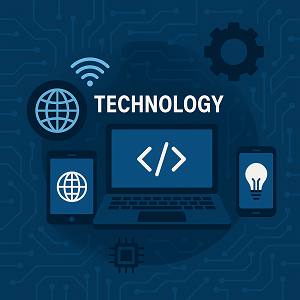Unleashing the Future: Dell’s Quantum Computing Innovations
Introduction
Quantum computing isn’t just a buzzword; it’s a seismic shift in technology that promises to revolutionize computing as we know it. At Dell Technologies, we’re not only on the forefront of this change but leading the charge. In this blog post, let’s dive headfirst into Dell’s research and development initiatives that are propelling us into a quantum future.
What is Quantum Computing?
Quantum computing leverages the principles of quantum mechanics to perform computations far beyond the capabilities of classical computers. It uses qubits—quantum bits—that can exist in multiple states simultaneously, thanks to superposition and entanglement. This allows quantum computers to solve complex problems at unprecedented speeds.
Why is Dell Invested in Quantum Computing?
Dell Technologies understands that quantum computing has the potential to revolutionize various industries, from healthcare to finance and beyond. We’re invested in this burgeoning field because we see the future benefits it can bring to our customers and society as a whole. Here’s why Dell is making bold strides in quantum computing:
- Innovation Leadership: Maintaining a competitive edge means staying ahead in technological advancements.
- Customer Solutions: Providing cutting-edge solutions to complex problems for our clients.
- Global Impact: Addressing global challenges in science, medicine, and beyond.
Dell’s Quantum Computing Research Initiatives
#### Collaborations and Partnerships
Collaboration is key in the quantum realm. Dell Technologies has partnered with academic institutions, research bodies, and other tech giants to accelerate quantum computing research. Noteworthy partnerships include:
- IBM Quantum Hub: Working with IBM to provide access to quantum computing resources for research purposes.
- University Collaborations: Collaborating with prestigious universities to develop quantum algorithms and applications.
#### Building Quantum Simulators
Before quantum computers become mainstream, quantum simulators serve as crucial tools for research and development. Dell is at the forefront of creating powerful simulators that mimic quantum computing behaviors, allowing researchers to test and develop quantum algorithms efficiently.
#### Developing Quantum Algorithms
Quantum algorithms are the life force of quantum computing. Dell is actively involved in creating and optimizing algorithms that can solve complex problems in seconds—a fascinating area with limitless potential. Our research focuses include:
- Optimization Problems: Enhancing supply chain logistics and financial modeling.
- Cryptography: Developing new encryption techniques resilient to future quantum attacks.
- Material Science: Accelerating the discovery of new materials and drugs.
Challenges in Quantum Computing
Despite its massive potential, quantum computing faces several hurdles:
- Error Rates: Quantum systems are highly prone to errors due to decoherence and quantum noise.
- Scalability: Building a scalable quantum computer with millions of qubits is still a challenge.
- Hardware: Developing stable and efficient quantum hardware remains a significant hurdle.
Dell’s Solutions to Overcome Challenges
Dell employs a multi-faceted approach to tackle these challenges head-on:
- Quantum Error Correction: Researching methods to detect and correct errors in quantum systems.
- Hybrid Systems: Developing hybrid systems that combine classical and quantum computing to optimize performance.
- Advanced Materials: Investing in research for materials that can improve qubit stability and coherence.
Quantum Computing Applications
So, what’s all this tech jargon leading to? Quantum computing has some mind-blowing applications:
- Drug Discovery: Revolutionizing how we discover new drugs by simulating molecular structures quickly and accurately.
- Financial Services: Optimizing trading strategies and risk management systems.
- Climate Modeling: Providing more accurate climate predictions to aid in combating climate change.
FAQs
#### What makes quantum computing different from classical computing?
Quantum computing uses qubits that can exist in multiple states simultaneously, offering exponentially greater computing power compared to classical bits.
#### How soon will we see practical quantum computers?
While significant advancements are being made, practical, large-scale quantum computers may still be 5-10 years away.
#### Is Dell working on quantum software as well as hardware?
Yes, Dell is actively developing both quantum hardware and software solutions.
Conclusion
Dell Technologies is committed to pushing the boundaries of what’s possible with quantum computing. Our myriad initiatives in research, development, and collaboration are paving the way for a new era of technology. Stay tuned as we continue to innovate and explore the incredible possibilities that quantum computing holds.

